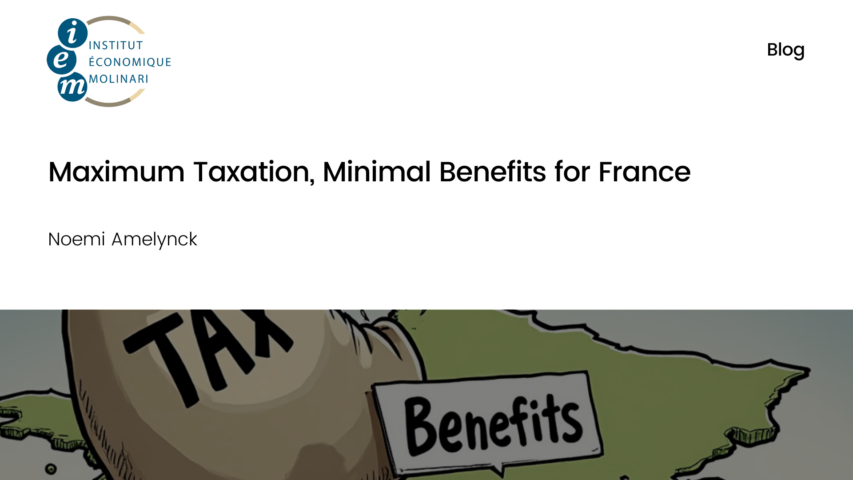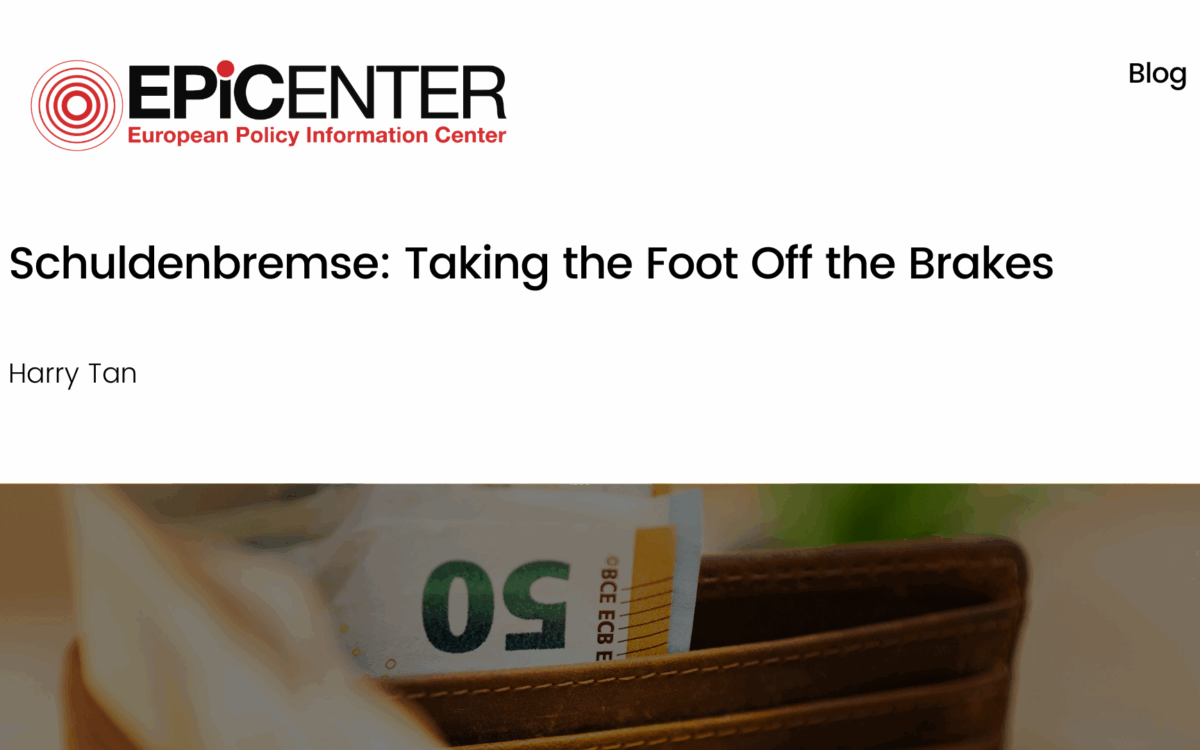Maximum Taxation, Minimal Benefits for France

Maximum Taxation, Minimal Benefits for France
Noemi Amelynck // 17 August 2020
For the fifth consecutive year, France has been the champion of taxation, with the average French citizen paying more than half of their income into the state’s coffers. France’s tax policy remains inefficient and infringes upon the purchasing power of French employees, despite the slight decrease of overall taxation following the yellow vest protests.
The fiscal Freedom Day in France falls on July 19th, whereas July 14th is the average day in the EU. Up to this point, employees are working to finance public spending and only after this date can they benefit from their own labour. It is problematic that the French worker does not even control half of their income and, worse even, has a limited impact over political decision-making. After six years, the average effective tax rate within the Union has increased to almost 45%.
Taxation and social security contributions in France are made up mainly of employer contributions, (55%), taxes/contributions on salaries (30%) and VAT (9%). The most obvious consequence of high taxes is the fact that they decrease real purchasing power. The average French employee is among the best paid in the EU, but, due to high taxes, this is not reflected in real purchasing power. In order to obtain €100 of real purchasing power, the average French worker must pay €121 in charges and taxes – the EU average is €85. The tax system also creates tensions between the employers and employees, as the former are under the impression that they are spending a significant amount on their employees, while the latter feel that they are not being rewarded enough.
In 2019, as a response to the yellow vest protests, the Macron government announced certain tax cuts. The policy amounted to five billion euros and the aim was to increase the purchasing power of the middle class. The reform decreased the income tax rate for the second bracket from 14% to 11%, and also lowered the threshold for the 30% income tax bracket. According to the government, households with a previous income tax rate of 14% will gain €350 per year on average, and those in the 30% tax bracket will gain €180 on average. However, the gains for the average single person is limited to €126. Given that 66% of French taxpayers are classified as single, widowed, divorced or separated, this has been disappointingly small for them.
The French government also implemented reforms reducing employee contributions towards health and unemployment benefits in order to increase the net salary of average employees. This measure was meant to generate an increase of €500 a year taking the net average salary to €2,200 a month. However, the reform also increased the Generalized Social Contribution (CSG), which funds the welfare system, so the average employee only gained €403. Though there was a gain, the reform did not go as far as it could have.
These measures taken by the government have attempted to increase the purchasing power of French employees, but its economic policies remain inefficient. For example, among the EU and OECD countries, France ranks last in the 2020 Employment Flexibility Index. This takes into account French policies which limit fixed-term contracts and strict redundancy rules. France’s rigid and expensive labour market policies have obstructed its ability to effectively respond to market needs. A liberalisation of the labour market would lead to higher employment rates, and thus an increase in the number of taxpayers, and a decrease in spending on unemployment benefits and related benefits. This is the sort of reform that would give the government scope for meaningful tax cuts.
The article is based on the report ‘The Tax Burden of Typical Workers in the EU‘, released by the Institut Economique Molinari.
EPICENTER publications and contributions from our member think tanks are designed to promote the discussion of economic issues and the role of markets in solving economic and social problems. As with all EPICENTER publications, the views expressed here are those of the author and not EPICENTER or its member think tanks (which have no corporate view).



